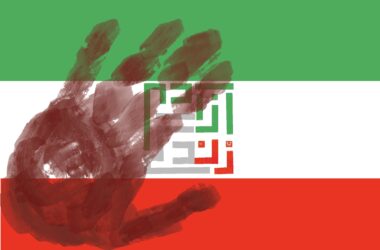Between Nov. 7 and 14, 28 departments will hold general assemblies (GAs) to vote on strike motions in support of Palestine for the week of Nov. 17. As of Nov. 10, three of the 28 passed a motion to strike. The motions, although independently submitted to each faculty, share four central demands. They call on McGill to divest from its holdings in companies complicit in Israel’s ongoing genocide and apartheid in occupied Palestine; disclose its financial holdings; drop disciplinary charges—such as injunctions—against students involved in popular organizing, political advocacy, and demonstrations; and end any research or financial partnerships involving organizations or individual donors that perpetuate or benefit from the sale of weapons or military technology.
Departmental strikes represent an institutionally mandated and unified channel to hold the McGill administration responsible for its complicity in Israel’s genocide in Gaza.
Though the university has yet to divest, McGill cannot remain obstinate forever if pressure from its students and faculty continues. Striking may feel futile, and the effort to do so exhausting, but as a student body, our commitment to action must persist. In this war of attrition, the question is whether sustained student pressure can outlast institutional intransigence—whether we can make the status quo more costly to maintain than to change.
Strikes at the departmental level are a testament to the incredible breadth of the pro-Palestine movement on campus and the diversity of contexts within which mobilization can emerge and prosper. By organizing within their own departments—rather than through Students’ Society of McGill University (SSMU) as in April’s and October’s centralized strikes—students and faculty show the movement is not confined to one demographic. It is a movement not only driven by students learning about politics and global conflict, but also by those studying computer science and physics alike. In breaking the stereotypes of political participation, everyone in the McGill community is implicated. Therefore, those who choose not to participate must confront their complicity.
Due to its smaller scale, activism at the departmental level creates and sustains the interpersonal relationships necessary for successful mobilization much more effectively than under a single centralized organizational body, such as SSMU.
Departments have the choice between hard-picket and soft-picket striking strategies, as well as the date and time of their respective strikes. Allotting agency to each department means that their subsequent strikes are rooted in an intrinsic motivation, as opposed to an externally imposed framework for activism.
Meanwhile, disseminating action across dozens of departments and across a number of days disarms the administration’s ability to stifle the pro-Palestine movement in any one fell swoop. This structure nullifies McGill’s characteristic tactic for disabling centralized strike efforts, such as its severance of its memorandum of agreement with SSMU. With no single legal mechanism to delegitimize all striking departments, the administration will struggle to maintain its controlling grip that aims to vilify student activism.
On a symbolic level, the widespread will to strike from students and faculty alike demonstrates a marked shift in campus attitudes towards pro-Palestine activism—and towards solidarity between activists. These strike motions follow hot on the heels of the historic resolution from the McGill Association of University Teachers’ landslide vote to endorse the academic and cultural boycott of Israel, demonstrating a new solidarity between faculty and students, and the universality of support for Palestine.
If we don’t cede, the administration will have to—and participation is the first and most important step. The Religious Studies GA already failed to meet its department’s low quorum. Attend your departmental GA, petition if your department has not yet approved one, bring your friends with you, hold classmates and professors accountable, and use your vote. Striking is effective and only gains momentum as time goes on.
McGill’s administration has remained stubborn and unyielding, and shown strong endurance in waiting for protests to tire. When striking feels pointless, and when we—as students and faculty—feel the fatigue of two years of our activism remaining unheard and repressed, we must remind ourselves that those in power count on the burnout of the activists that hold them accountable. We must not give them that satisfaction.









